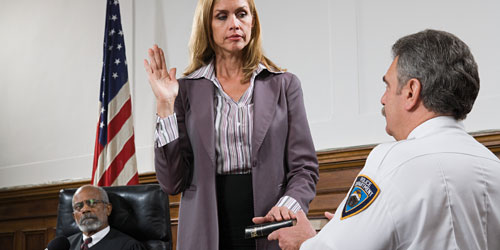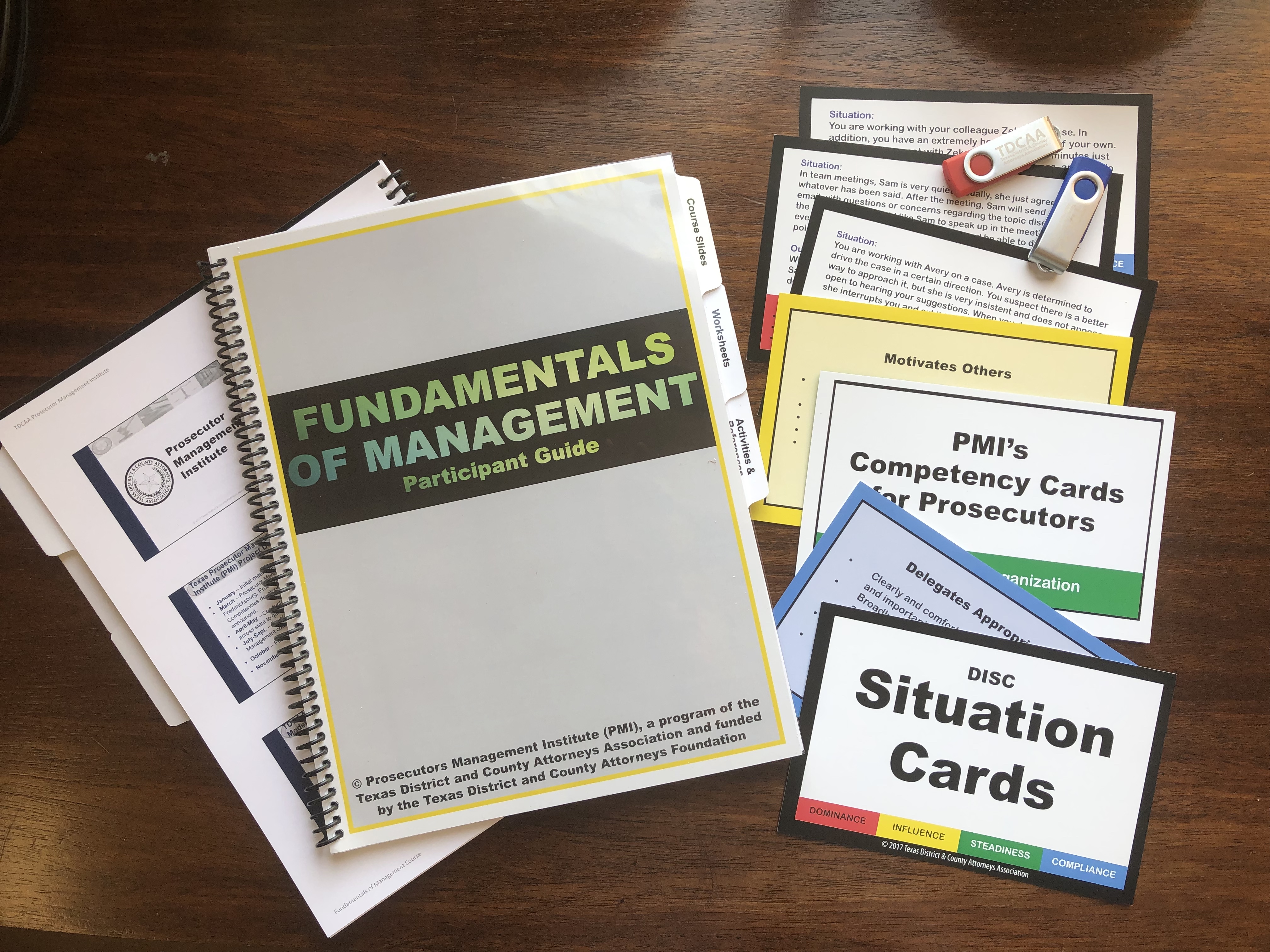U.S. Supreme Court
No. 15-7250 4/19/17
Issue:
Is a single notice of appeal, filed between the initial judgment and amended judgment, sufficient to allow appellate review of a later-determined restitution amount?
Holding (Thomas, J.):
No, if the government objects to the defendant’s failure to file a notice of appeal after the amended judgment. A defendant who wishes to challenge an order imposing restitution in a deferred restitution case must file a notice of appeal from that order. Read opinion.
Dissent (Ginsburg, J., joined by Sotomayor, J.):
The dissent noted that the Court has previously ruled that time limits and other procedural limitations are “claims-processing rules, not jurisdictional requirements.” The dissent would treat the district clerk’s transmission of the amended judgment to the 11th Circuit “as an adequate substitute for a second notice of appeal.”
Commentary:
This presentation of federal law is somewhat similar to Texas law in that a separation restitution order is considered an order from which the defendant can appeal and from which the defendant can and should file a separate notice of appeal. See Bailey v. State, 160 S.W.3d 11 (Tex. Crim. App.2004). However, Texas courts always treat notices of appeal as jurisdictional, so it does not matter whether the State or the Government objects. Apparently, under the federal rules, a “claims processing rule” need not be held against the defendant if the Government does not object.
No. 15-1256 4/19/17
Issue (Ginsburg, J.):
When a criminal conviction is invalidated by a reviewing court and no retrial will occur, is the State obliged to refund fees, court costs, and restitution charged to the defendant?
Holding:
Yes. The Court held that Colorado’s Exoneration Act, which sets out procedures for defendants seeking a refund of these costs, violates the 14th Amendment’s due process clause. “Colorado’s scheme fails due process measurement because defendants’ interest in regaining their funds is high, the risk of erroneous deprivation of those funds under the Exoneration Act is unacceptable, and the State has shown no countervailing interests in retaining the amounts in question. To comport with due process, a State may not impose anything more than minimal procedures on the refund of exactions dependent upon a conviction subsequently invalidated.” Read opinion.
Commentary:
It will be interesting to see how the effect of this decision will play out across the United States, including Texas. Texas has a law—Chapter 103 of the Texas Civil Practice and Remedies Code—that is designed to compensate persons who have been wrongfully imprisoned. But that law (unlike Colorado’s) does not speak to reimbursing a defendant for fees, court costs, and restitution that he has been paid after having been convicted if that conviction is later reversed and the State cannot or does not seek a retrial. Texas appellate courts have seen a significant amount of court cost litigation of late; you should expect to see more based on this decision.
Texas Court of Criminal Appeals
No. PD-0771-16 4/26/17
Issue:
When error that cannot be remedied or misconduct happens in the punishment phase of a jury trial, does a trial judge have authority to grant mistrial as to the punishment phase only?
Holding:
Yes. Nothing in the Code of Criminal Procedure prohibits a trial court from granting a mistrial limited to a new punishment phase of trial under appropriate circumstances. “If some error or misconduct occurring during the punishment phase of trial could have had no conceivable effect on the legitimacy of the jury’s verdict with respect to a defendant’s guilt, there is no compelling reason to repeat the guilt phase of trial. It would only serve to grant the defendant a gratuitous second chance at an acquittal.” The Court noted that the only exception would be if a defendant has elected to have a jury assess his punishment under Code of Criminal Procedure Art. 37.07, §2(b), in which case the defendant is entitled to have “the same” jury assess punishment as assessed guilt. Read opinion.
Commentary:
In reaching its conclusion in this case, the court essentially overruled a very old decision from the court. The real impediment to this new decision, however, is not this old decision from the court. The real impediment is the language of Article 37.07 of the Code of Criminal Procedure. That statute only contemplates a mistrial at the punishment stage if the jury “hangs” on the punishment verdict. Otherwise, a defendant is entitled to have the same jury assess punishment that also decided his guilt. The court got around that statutory right in this particular case because the defendant in this case essentially invited the trial judge to have a new jury assess his punishment. (It was not until later that the defendant apparently thought better of that and filed a writ of habeas corpus, claiming that he should be put back at the beginning of the entire proceedings). Based upon this decision, a defendant may still be entitled to an entirely new trial if a mistrial is declared at the punishment stage (for a reason other than the “hanging” of the jury) and he objects to the trial judge’s attempt to call a new jury only for the punishment stage. Stay tuned.
No. PD-0891-15 4/26/17
Issue:
What is the standard for evaluating ineffective assistance of counsel in cases where the defendant waived a jury trial in favor of a bench trial?
Holding:
By considering the totality of the record so the deficient performance is gauged by viewing the outcome of the bench trial with the probable outcome of a jury trial. The Court rejected evaluating ineffectiveness by considering solely how the deficient performance affected the defendant’s decision to waive a jury. In this case, the defense attorney incorrectly advised the defendant that he would receive probation if found guilty by the trial court in an aggravated sexual assault and indecency with a child case. A plurality of the Court concluded, however, that the defendant could not show that there was a reasonable probability for a different outcome than he received by going to the judge for punishment. Read opinion.
Dissent (Keel, J., joined by Richardson and Walker, JJ.):
“The plurality’s analysis of this claim errs in three ways. First, instead of recognizing that the jury waiver itself is prejudice, the plurality speculatively compares the result of the bench trial Appellant had with the reasonably likely result of the jury trial that he did not have. Second, the plurality misapplies the Miller dissent–Page 2 different-outcome test that it purports to embrace by requiring not merely a reasonable likelihood of a better outcome, but a specifically better outcome from the hypothetical jury, i.e., probation. Third, the plurality indulges implicit fact findings to support the trial court’s denial of the motion for new trial even though the trial court made explicit fact findings.” Read opinion.
Commentary:
This is a decision that may be of interest only to post-conviction attorneys. The bottom line even in that light is that this decision has no precedential value because it is a plurality decision. We do not know the correct standard of review for this type of ineffective assistance of counsel claim because, as all judges noted, there are two decisions from the court that are directly contrary to one another on the appropriate standard of review. The odds of the United States Supreme Court granting a writ of certiorari in any case are exceedingly rare. But there is at least the possibility that the Court might be interested in reviewing this legal issue.
Texas Courts of Appeals
No. 01-16-00120-CR 4/25/17
Issue:
May a defendant be convicted of felony murder for conspiracy to commit state jail felony theft?
Holding:
Yes. Even though a conspiracy to commit theft might be considered a misdemeanor offense under Penal Code §15.02, the State alleged a conspiracy under Penal Code §7.02(b), which establishes a conspiracy theory of party liability. “Conviction under Section 7.02(b) only requires a conspiracy to commit a felony; it does not also require that the conspiracy itself constitute a felony…. Thus, [the defendant] may be guilty of felony murder even though the conspiracy itself, had she been charged with that offense, would have been a misdemeanor.” Read opinion.
Commentary:
This is a good decision, but some of the language about the defendant only being guilty of committing a misdemeanor is unfortunate. The defendant was in fact guilty of a state jail felony (theft) as the predicate felony for felony murder. He was guilty as a party under §7.02(b), which is often referred to as the conspiracy theory of party liability, but it has nothing to do with the offense of conspiracy under §15.02 of the Penal Code. The defendant may also have been guilty of conspiracy to commit state jail felony theft (which is a misdemeanor), but that does not change the fact that he was also guilty of state jail felony theft under the law of parties in §7.02(b). That state jail felony theft is the predicate felony for the felony murder offense.
No. 11-14-00287-CR 4/10/17
Issue:
Does the depredation exception in Penal Code §42.092(f)(1)(B) (Cruelty to Nonlivestock Animals) apply once a defendant has secured the personal property he feels the animals will damage?
Holding:
No. Assuming without deciding that §42.092 applies to protecting a domestic dog, the Court held that once the defendant had placed his Chihuahua safely inside his home, the depredation exception did not allow him to shoot a dog in his yard. Read opinion.
Commentary:
The court of appeals has given the defendant far more credit than he deserves. Depredation constitutes a generally accepted and otherwise lawful “form of conduct occurring solely for the purpose of or in support of . . . wildlife management, wildlife or depredation control, or shooting preserve practices as regulated by state and federal law.” This defendant was certainly not engaged in anything like that. Three dogs were near his property while a woman was trying to move them back towards their home, and the defendant threatened to shoot the woman and the three dogs. After putting his own dog inside his own home, he went back outside and shot one of the dogs. He was not engaged in “wildlife management.”
No. 01-16-00607-CR 4/18/17
Issue:
Must an appellate court consider a record of a transfer hearing along with the wording of a juvenile transfer order in evaluating whether a juvenile case should have been transferred to district court?
Holding:
No. Under Moon v. State, 451 S.W.3d 28 (Tex. Crim. App. 2014), an appeals court may only look at “the facts that the juvenile court expressly relied upon, as required to be explicitly set out in the juvenile transfer order.” Read opinion.
Commentary:
One of the cardinal rules of habeas corpus law is that a court is not to permit a writ of habeas corpus to be used to test the sufficiency of the evidence (unless the defendant is raising an actual innocence claim). The court of appeals seems to avoid that rule in the name of judicial economy. The court has essentially held that any juvenile transfer order issued prior to the change that occurred with Moon v. State is void. The Court of Criminal Appeals will certainly want to review this decision.
Texas Attorney General Opinions
Issue:
When is a search warrant affidavit “executed” and therefore publicly available under Code of Criminal Procedure Art. 18.01(b)?
Conclusion:
A search warrant affidavit is “executed” and considered public information when it is sworn to and filed with the court under the plain language of Art. 18.01(b). However, Art. 18.011 allows sealing of affidavits in limited circumstances. The AG Opinion also noted that if the legislature did not intend for affidavits to become public until after the officer executes the warrant, it could amend Art. 18.01(b). Read opinion.
Commentary:
Rep. Joe Moody (D-El Paso) has filed a bill (HB 3237) that would amend Art. 18.01(b) to provide that the affidavit only becomes public information when the search warrant is executed. As of the date of this email, the bill has been reported out of the House Criminal Jurisprudence Committee and is pending in the Calendars Committee. Other jurisdictions have better provisions for the sealing of search warrant affidavits. Hopefully, this bill (or something like it) will get passed.
TDCAA is pleased to offer these unique case summaries from the U.S. Supreme Court, the Fifth Circuit Court of Appeals, the Texas Court of Criminal Appeals, the Texas Supreme Court, the Texas Courts of Appeals and the Texas Attorney General. In addition to the basic summaries, each case will have a link to the full text opinion and will offer exclusive prosecutor commentary explaining how the case may impact you as a prosecutor. The case summaries are for the benefit of prosecutors, their staff members, and members of the law enforcement community. These summaries are NOT a source of legal advice for citizens. The commentaries expressed in these case summaries are not official statements by TDCAA and do not represent the opinions of TDCAA, its staff, or any member of the association. Please email comments, problems, or questions to Diane.Beckham@tdcaa.com.



